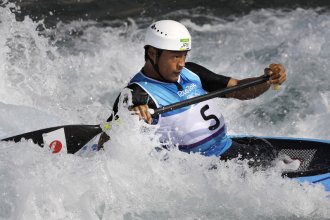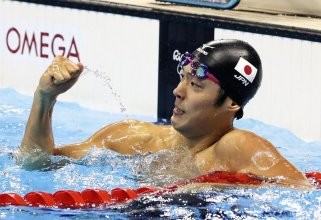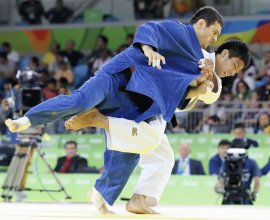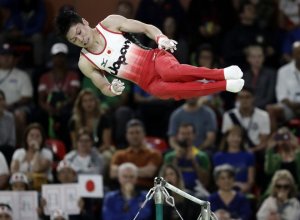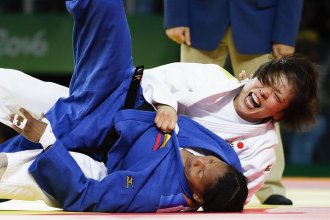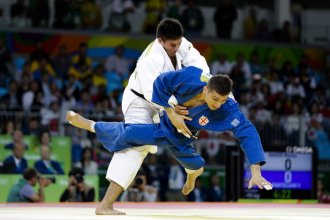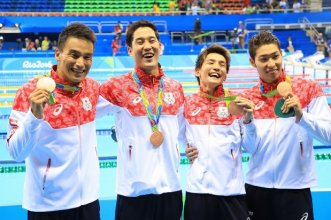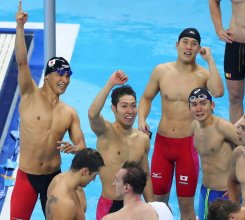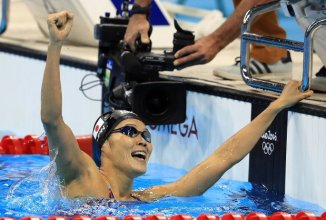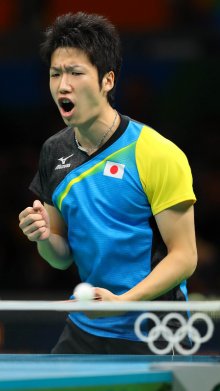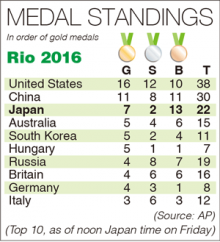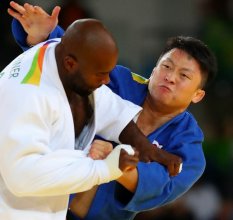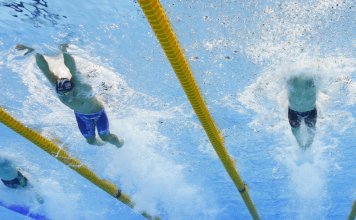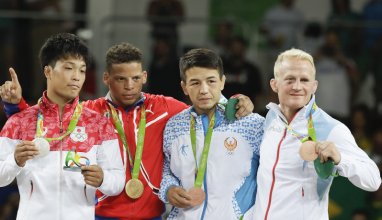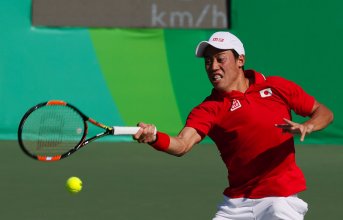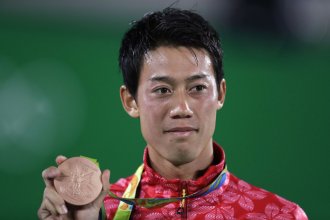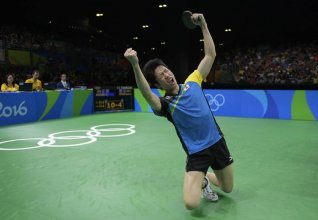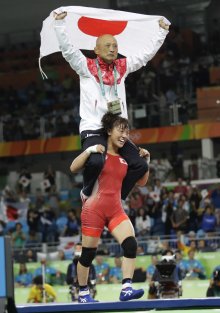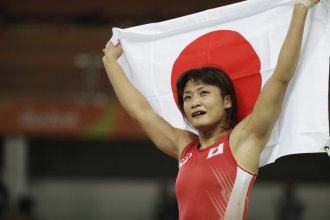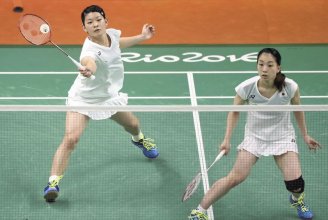Matsumoto wins bronze
RIO DE JANEIRO — Kaori Matsumoto won the bronze medal on Monday in women’s 57-kilogram division at the Rio de Janeiro Olympics.
Matsumoto, 28, who hails from Kanazawa, started practicing judo at 6. She won her major title at the Kodokan Cup national weight-class championships in 2007, then debuted at the world championships in 2009, finishing 5th.
She rose to the stardom at the 2010 world championships, becoming the first-ever Japanese judoka to win the 57-kilogram division. In 2012, she again brought Japan a first-ever title, this time winning the gold medal in the division at the London Games in her Olympic debut.
She saved face for Japan’s judo team at London, as her victory was the lone gold Japan was able to win. None of the male judoka stood atop the podium for the first time since judo became an official sport at the 1964 Tokyo Olympics.
RIO DE JANEIRO — Kaori Matsumoto won the bronze medal on Monday in women’s 57-kilogram division at the Rio de Janeiro Olympics.
Matsumoto, 28, who hails from Kanazawa, started practicing judo at 6. She won her major title at the Kodokan Cup national weight-class championships in 2007, then debuted at the world championships in 2009, finishing 5th.
She rose to the stardom at the 2010 world championships, becoming the first-ever Japanese judoka to win the 57-kilogram division. In 2012, she again brought Japan a first-ever title, this time winning the gold medal in the division at the London Games in her Olympic debut.
She saved face for Japan’s judo team at London, as her victory was the lone gold Japan was able to win. None of the male judoka stood atop the podium for the first time since judo became an official sport at the 1964 Tokyo Olympics.



